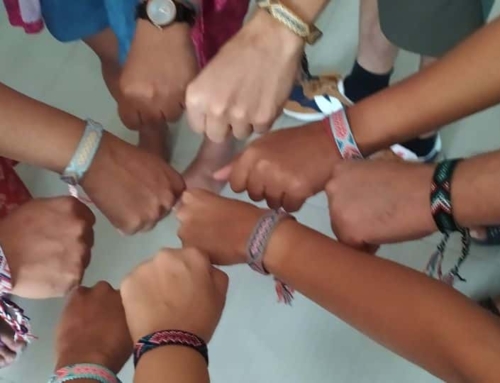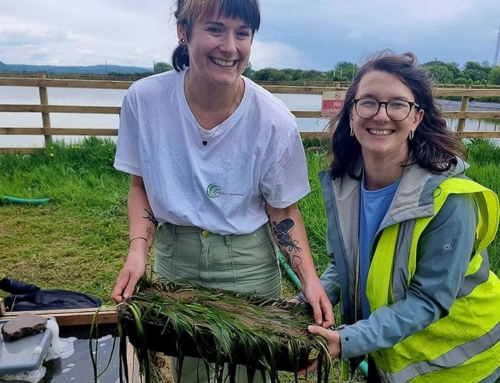In 2018, Claire Nouvian, Founder and Chair of BLOOM Association (BLOOM), was awarded the prestigious Goldman Environmental Prize (Europe) for her tireless campaigning on vital and urgent marine conservation issues. Synchronicity Earth has been supporting BLOOM for over five years, so we were delighted and proud to see Claire and her team recognised as such an inspiration to so many others involved in conservation. I caught up with Claire to hear about her dreams of the deep sea, the role of social science in conservation and how, when it comes to conservation organisations, small is beautiful.
What does BLOOM do?
We focus on marine conservation issues. We know that solutions to the disaster we are witnessing in our oceans today are out there, but very few of them make it into discussions and even fewer are actually implemented. We are particularly interested in public policy: there’s nothing more public than a fish which is free, swimming out there in the ocean and doesn’t belong to anyone. We know that there are solutions which could make a huge difference, but we are fighting against the fact that policy-makers generally don’t follow scientific knowledge. Instead, they tend to bow to political pressure or think very short-term with a view to getting re-elected, making decisions for which there are global consequences which affect us all.
How did you first become interested in ocean conservation and the deep sea?
I really stumbled upon marine issues quite by chance. I think, at heart, I would have ended up fighting injustice whatever I chose to do, and it was just a set of random encounters and circumstances that led to me working to protect wildlife more than humans.
In 2000, I was working on the movie ‘Les nuits sauvages’, filmed in tropical forests of Africa and South America, and I caught two tropical diseases, one after the other. I had them both simultaneously although I contracted them in separate places, one in Africa and one in South America. I got very sick and couldn’t work – I was sleeping all the time. But, for the few hours I was awake every day, I was developing a million ideas for things I wanted to do. I had time to think about some personal projects, one of which involved the deep sea.
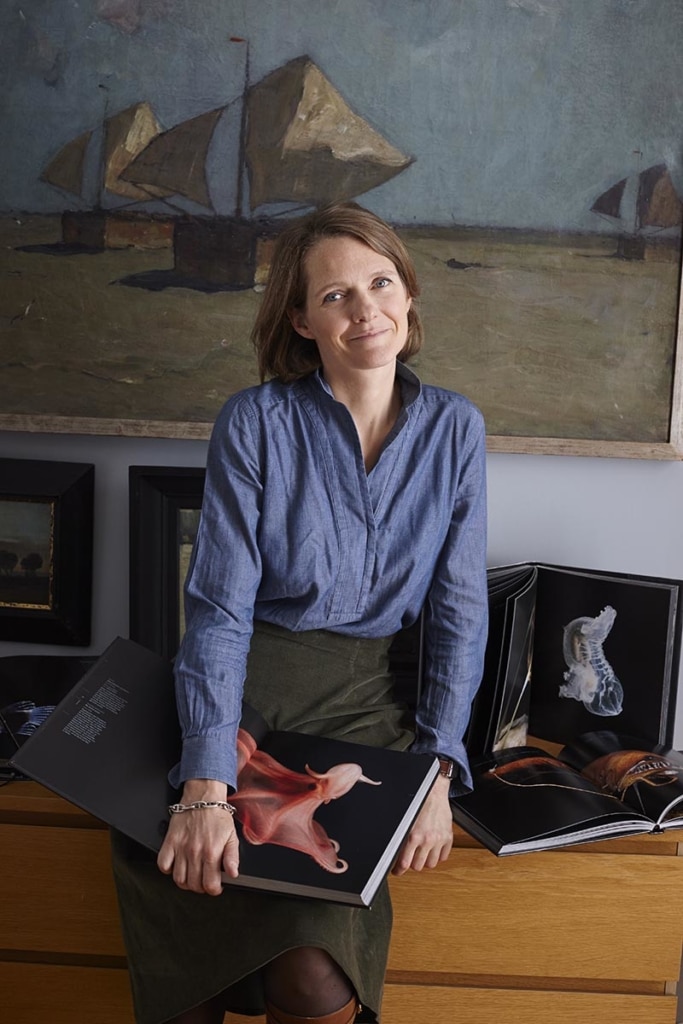
Image © Goldman Environmental Prize
I had recently discovered the deep-sea environment at the Monterrey Bay Aquarium in California. There was an exhibition called Mysteries of the Deep showing the most incredible images and films – the whole thing was just mind-blowing! I couldn’t get the deep ocean out of my mind, I was thinking about it night and day. Even as I was going to bed I was thinking of all the creatures down there in the dark as I was falling asleep… It was such a revelation to me that so much life existed down there that was simply ignored. Nobody seemed to respect or even acknowledge the fact that this life was being destroyed day after day.
While I was convalescing, I had time to do some writing and research and to put all this into an idea, which was to write a book and do an exhibition, both of which I did. I ended up focusing on marine environments rather than forests or other ecosystems because I felt that people were more aware of what is happening on land. For oceans, people are generally unaware of what is happening, simply because so much of what happens in them is out of sight.
What do you think is people’s most common misconception about the deep sea?
I would find it difficult to pinpoint people’s misconceptions about the deep sea specifically, when I find that there are so many misconceptions out there about pretty much everything. For me, when people have beliefs instead of knowledge, that is something I simply can’t relate to. That’s probably why I have such difficult relations with people! I’m very happy to engage with people in a work context, but socially I find it difficult to talk to anyone who is not engaged with knowledge at all. I fight my own ignorance all day long and I guess I have that expectation about others.
At BLOOM, we are fighting against this lack of knowledge. Typically, if we talk about either deep-sea bottom trawling or electric fishing, then we are trying to shine a light on a topic which is almost completely unknown. We take difficult topics – things which often aren’t on the radar of the media – and bring them out.
To give an example, a number of NGOs have managed to put Glyphosate (the active ingredient in many weed-killers) on our radar. Very few people knew that word before. So, like other NGOs, we try to make sure that there is a public debate about some of the destructive realities that are happening in the world, often out of sight and without our knowledge. In that sense, we do fight ignorance, but I really couldn’t tell you what the public think about the deep sea!
BLOOM creates very strong campaigns to try to influence consumers and therefore the behaviour of corporations. What do you put the success of these campaigns down to?
For our campaigns on deep-sea bottom trawling and the vote on electric fishing in the European parliament, one of the most important things was taking lessons from social sciences and bringing them to the field of conservation. For example, typically we refer a lot to Jennifer Jacquet’s work on shame. She wrote an excellent book called ‘Is Shame Necessary’, and I think it deserves to be quoted because a lot of what we do is based on her understanding of how shame works.
We also use Simon Baron-Cohen’s work – he’s a British psychologist and he works on empathy. His ‘Zero Degrees of Empathy’ is a crucially important book which explains the real world, how people function, and their dysfunction. I think once you have read that, whether it’s a campaign, an interaction or anything else, it is very difficult to shape anything in the same way as before you read it.
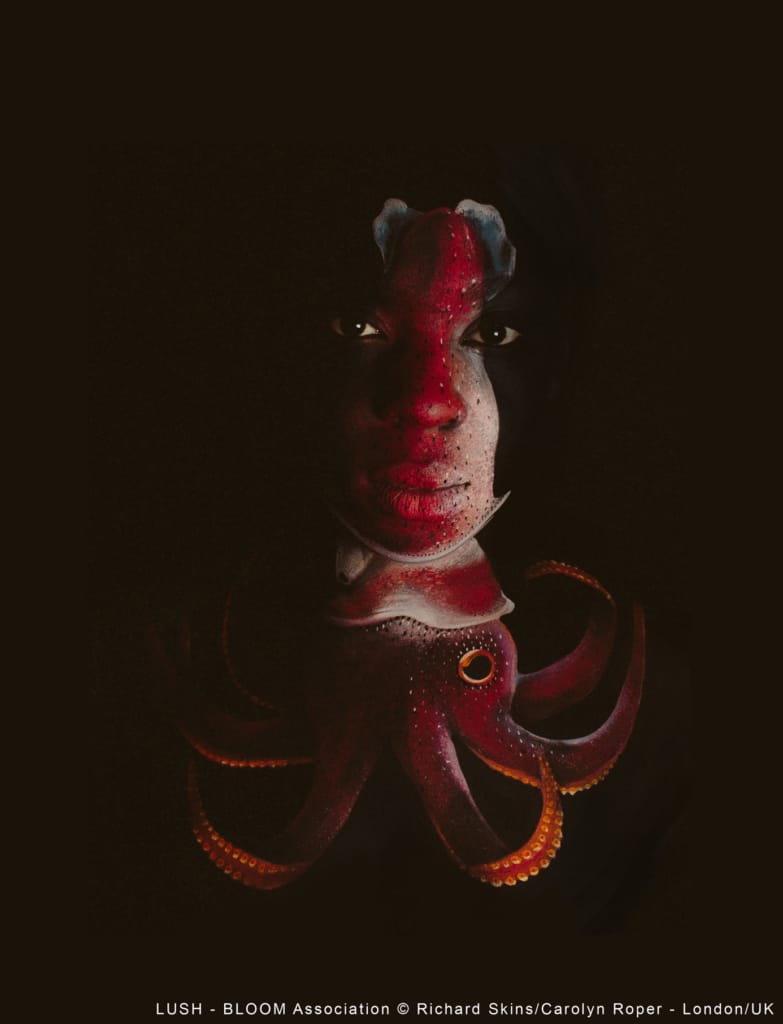
So, we take lessons from the social sciences into how we draft campaigns. For me, it is unsurprising that this leads to success. When we shape a campaign, we base it on – of course – political strategy, that goes without saying, but we also incorporate social sciences. Remarkably, I find that few organisations engage in that way i.e. I don’t see them drafting campaigns based on a much broader cultural corpus. There is so much out there to read, to be inspired by and to take into consideration when making choices.
We try to create the best recipes for success, and sometimes they don’t work but when they do, it is really quite logical: if we follow our plan – and we do – there’s nothing magical about it, it is more about how much work people can put into our campaigns that really leaves me speechless.
Ego is something I cannot deal with – and I don’t – so that’s why I feel much closer to small organisations. I love working with smaller NGOs. Larger NGOs always seem to have some internal politics, which I have no patience for – even as an outside collaborator I find it difficult and challenging. I love the reactivity that smaller structures allow, and the fact that, in all the smaller groups that I work with (and there are so many, dozens, hundreds even) I find the same passion, whatever the topic. Whether it’s for street children, for conservation in Madagascar, or anything else: I find that I completely relate to the sincerity that I find in smaller organisations.
At the end of the day, you want your work to lead to change, you want to see results and we have little time. The tasks we face and the objectives we set ourselves are huge, and there is not enough time, money or people, so we really cannot afford to deal with the huge diplomatic internal issues that many of these larger groups have.
The people I work with at BLOOM really are irreplaceable. They are so driven and the amount of heart, passion and energy they put into the work is incredible! That for me is an eternal surprise.
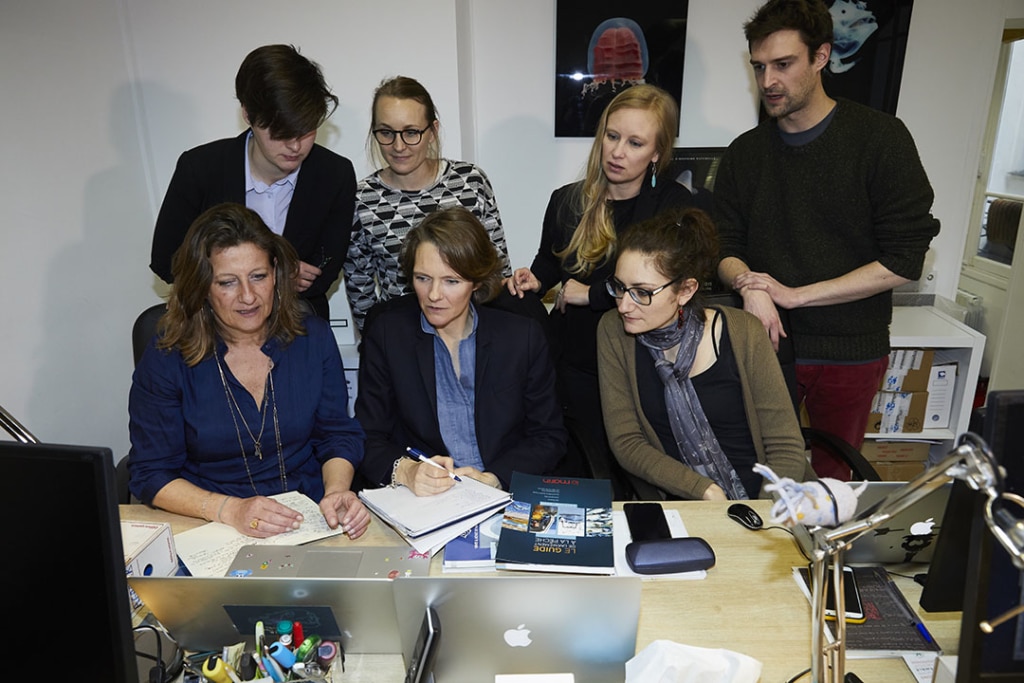
Image © Goldman Environmental Prize
Faced with the scale and nature of the challenges in marine conservation, the power of international corporations and the snail’s pace of change, how do you stay motivated?
I find that I can really disassociate the two levels. One is individual: on a daily basis, my motivation remains as strong as ever because my team is fantastic. I love working with them, our goals are sound, I respect them and I love the mission that we’ve set for ourselves – even if it is mission impossible! I find meaning in fighting things that are disgusting and unfair.
On a more global level, I must say I’ve completely lost hope with humanity. There seems to be something profoundly corrupt in us, so what makes sense for us as a group is simply to keep fighting and meeting and working with amazing people. We do have victories, we do win things, but it comes at a high price. I don’t think that should be the case, and I don’t think we’ll be able to fix all the world’s problems before the whole thing goes to hell. At the same time, whether I personally have lost hope or not doesn’t really change anything, because I think you need to fight for what is right. We’ll keep fighting for as long as there’s life: there might not be much hope, but there’s a fight and there’s action that can make things better, and that’s all I know.
Why do you think that plastics entering the ocean has suddenly become such a prominent issue – is it just because it is such a visible problem? Do you think we can learn anything from the way this issue has gained such attention?
I’m very glad that the plastic problem is being highlighted because for a long time I was wondering whether that would ever happen. Pollution is a huge problem – wherever it comes from or goes to – so I’m glad that the plastics issue has this momentum and is getting the attention that it deserves.
Having said that, it does feel a bit like the Danaides – trying to fill a sieve with water! I find it frustrating that just because there is huge media attention on the plastic continent and garbage patches, some people become convinced that trying to pick plastic out of the water is the way to go. I cannot relate to anyone trying to fight a symptom, except when we’re talking about direct animal or human welfare, when addressing the symptoms becomes a matter of emergency.
The truth is, plastic production doubles every ten years! You need to think about how to make sure it doesn’t enter the ocean in the first place, by giving it an economic value. Create that value chain somehow and you’ll have your solution, right? So, I think the lesson that we should take from any plastics campaign is that we need to address the causes.
We’re in a dangerous place right now: we’re jeopardising the very system that enables us to breathe and live on this planet, so we must start taking these issues more seriously.
Another worry is that many funders love anything that is new and shiny, and they sometimes allow themselves to be sweet-talked into technological solutions, and into believing that technology is somehow going to save humanity. We are not going to be saved by anything but ourselves, and our own will. As long as 40% of all profits generated on Earth are put into tax havens to avoid contributing to a better world, it’s an illusion to believe that we’re going to be able to bring about solutions through technology. That’s a dangerous narrative and a waste of time, in my view. So, I think that’s another important lesson we can take from the plastics campaigns: we need to make sure that funders are more serious. I wish some campaigners would think twice before launching something that’s going to be a complete waste of time.
In ten years from now, what would you like BLOOM to have achieved and what changes would you like to have seen in our relationship to the oceans?
I ask myself that question all the time! BLOOM is a small organisation trying to accomplish a lot, so we are constantly asking ourselves where we want to go and what we want to achieve. Our goals are very long-term, but in terms of changing the whole world population’s relationship to the oceans? For me, that’s impossible. Our dream – which we are really committed to – is for knowledge to drive public decision-making, rather than pressure groups.
We want science – and the best possible scientific understanding – to be driving decision-making. To do that, we need to have both transparency and public decisions and policies based on data.
At BLOOM, we have focused on a number of specific issues, but overfishing is the biggest problem in the ocean, alongside pollution. Emptying the ocean at the pace we are currently doing is a huge issue. We need to look at the reality of subsidies out there, whether it’s access to private banking or public subsidies, to ensure that we stop creating a financial incentive to destroy the ocean. When I say destroying the ocean, there is no question that is what we are doing – we’re destroying marine habitats, fish populations and jobs which depend on fish populations.
If anything could make me happy, it would be if we were able to contribute to more transparency on the financial side of things i.e. public subsidies. I think transparency would make it much harder to give financial incentives for these damaging activities. Secondly, we need to challenge and end the financial incentive that is fuelling overfishing, keeping overcapacity afloat and driving the destruction of the ocean.
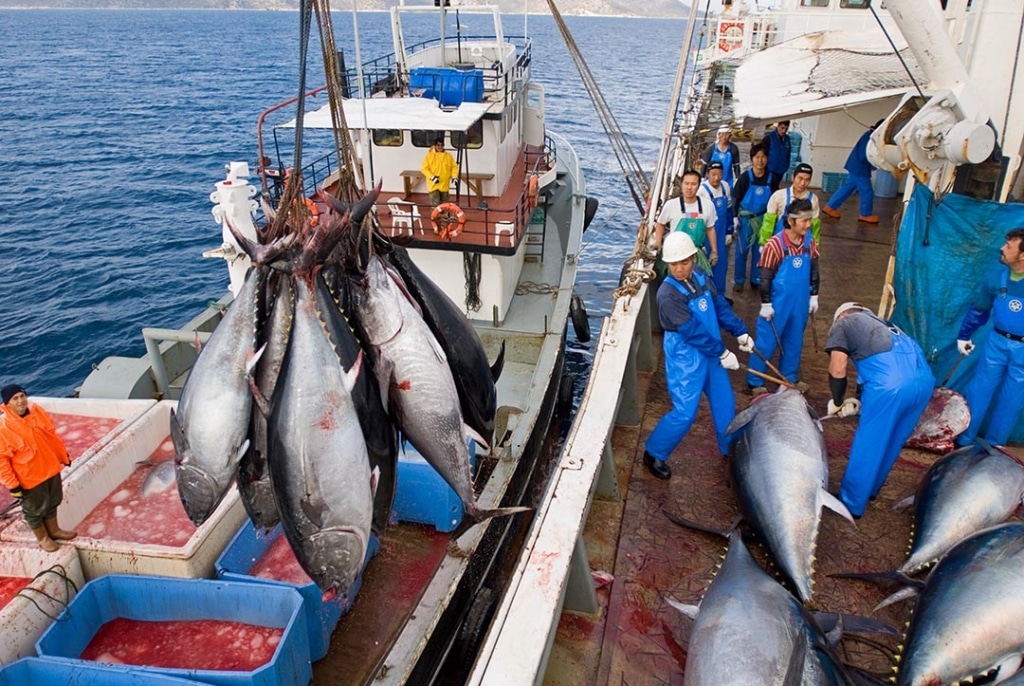
© Shutterstock
We are currently giving resources to the most destructive and largest industrial fleets that are driving out sustainable and small-scale jobs around the world at very high social cost. That needs to stop!
It’s very clear and we have very clear guidelines and a roadmap of what we want to achieve. Yes, it’s a long road, but challenging these two aspects of how the fishing sector works are the most fundamental for us.
How has Synchronicity Earth helped BLOOM to focus on the work they need to do?
Well, I’ve only got good things to say about you guys. You’re one of a few select groups – along with others like the ADM Capital Foundation – who provide the most precious support that we could ever dream of. Because we are a small organisation, the fact that you bear with us over the years and support us without imposing unrealistic deadlines is invaluable.
Being supportive and establishing a relationship based on trust – and, of course, on results – means that Synchronicity Earth can understand how hard we are working to bring about change, even if we don’t have results right away (because we’re talking about policy changes and they take a long time). But you understand this, and that is very precious to us.
You also relieve the pressure of constantly writing reports. To be honest, reporting can really kill a small organisation. If we had to do as much reporting as expected by large funders, then we’d probably spend more than half the year just writing reports, and we wouldn’t be able to do half the work we are actually doing! In any case, our activities are all online, so anyone who wants to know what we’re doing can look it up and write their own report. Don’t get me wrong, I think reporting is great, I love it and I genuinely find it fascinating to write reports – it’s my favourite time of year – but at the same time I’m not convincing people to change the world when I’m writing all these reports.
I think the lightness of the processing that you’ve put in place, the fact that it is so in tune, and synchronised with the reality of small organisations is incredibly valuable. That’s something I wish large funders could understand. If they’ve become too big to really support structures that bring about change, then perhaps they need to think about splitting into smaller structures.



